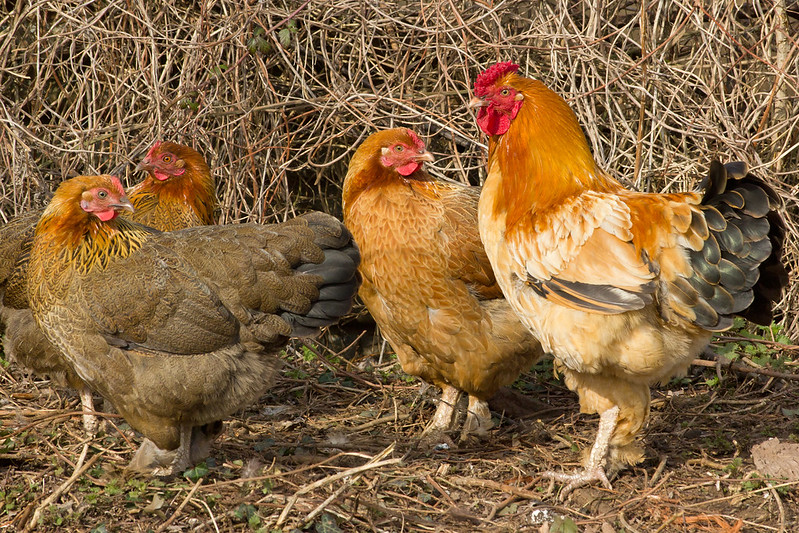
Playing chicken need not be aggressively competitive or even the best way to have productive chickens or a workplace. A better approach is to engender cooperation and contentment to breed the most productive hens.
Professor William M. Muir, the evolutionary biologist at Purdue University, has focused his research on group behavior and measuring productivity. In the 1990s, Muir advocated for a group-selection theory of livestock breeding to obtain a kinder, gentler bird as a better egg-producing hen. A cute – perhaps too cute — article from 2017, “Super Chickens: A Lesson in Competition” described Muir’s research on “generational breeding.”
His finding described more seriously in “Incorporation of Competitive Effects in Forest Tree or Animal Breeding Programs,” (GENETICS July 1, 2005 vol. 170 no. 3 124} found that “competition among domesticated plants or animals can have a dramatic negative impact on yield of a stand or farm.”
Generational breeding selects individual hens for their passiveness in order to protect the health and productivity of other hens in the pen, according to Muir.
In his experiment, Muir segregated two groups of hens: One control group of nine average producing hens, which was left to reproduce for six generations, and one test group of so-called Super Chickens, the highest quantity egg producers from each successive generation. Productivity was easy to track — because it was so quantitative – all one had to do was count the eggs.
At the end of the study, the results were alarming. The control group chickens were plump, well-feathered, healthy, and actually producing more eggs than they were at the start of the experiment. However, the Super Chickens group was in disarray, or at least what was left of them. Only three hens survived after many were aggressively attacked by the other hens and pecked to death.
The outcome of Muir’s Super Chicken study can draw parallels to education and the workplace. Specifically, where does the balance of competition and cooperation land? While they may not be either/or applications, experts repeatedly emphasize, like the Super Chickens, that cooperation is the better model.
Egg-zactly! whether you are a chicken or a human, it’s better and more productive to play nice.
Leave a Reply
You must be logged in to post a comment.